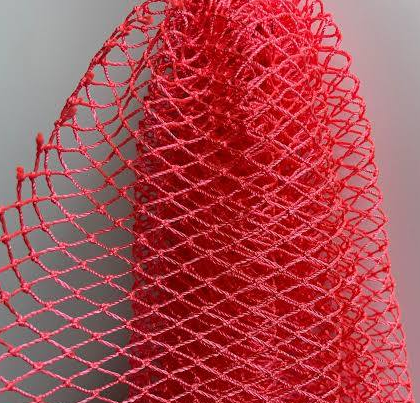Nylon is the most common material for net sponges due to its excellent foam generation and quick‐dry properties . Users praise its durability and how easily soap rinses out, keeping nets odor‐free. However, nylon can absorb water (making it heavier) and is more prone to UV degradation over time .
Polyester nets absorb almost no water, retaining lightness and buoyancy, and resist abrasion and UV exposure better than nylon .. Their stiffness maintains mesh shape for consistent exfoliation, making them ideal for long‐term use .
Knotted nets have visible ties at each intersection, creating a stable grid that withstands pulling and offers stronger exfoliation . They are preferred for heavy‐duty scrubbing and longevity, though the knots can trap residue if not rinsed thoroughly .
Knotless nets are woven without bulky knots, resulting in a smoother surface that’s gentler on sensitive skin and less likely to harbor bacteria . They’re flexible, quick to dry, and ideal for users seeking a softer experience .
Soft nets feature finer mesh and looser weaves, perfect for daily cleansing and delicate areas . They feel gentle on skin but may wear out sooner under frequent use.
Firm or coarse nets deliver more vigorous exfoliation, removing dead skin effectively. They’re durable and maintain their shape over time, though they can be abrasive for those with sensitive skin .
Skin Sensitivity:
Usage Frequency:
Daily use → durable polyester knotless nets
Occasional deep cleans → robust nylon knotted nets
Care & Maintenance:
Rinse thoroughly after each use
Hang to dry in a ventilated area
Replace every 4–8 weeks (polyester may last longer) .
Contact: Sales Department
Phone: 008615715606760
E-mail: contact@julya.com.cn
Whatsapp:008615715606760
Add: ADD:ROOM E6113,CHANGHE ECONOMIC CITY,NANGGANG SCIENCE PARK, TIANLONG ROAD,HEFEI CITY,ANHUI ,CHINA